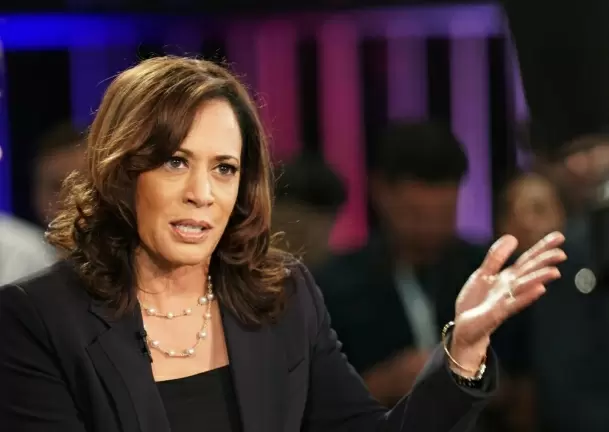On the brink of history, Kamala Harris goes flat out in Pennsylvania
02-November-2020

On the final day of campaigning before the US presidential election, Joe Biden and Kamala Harris are pitching their tent in all-important Pennsylvania, shaping up to be one of the biggest prizes of 2020. Pennsylvania delivers 20 electoral votes in the race to 270.
Biden and Harris -- along with their spouses, Jill Biden and Doug Emhoff -- will hold events in "all four corners" of Penn State on Monday.
Donald Trump, in a late stage gambit, has seized on fracking as a wedge issue in Pennsylvania, hoping to land a late surge of white voters who helped him to an upset victory in 2016. Trump describes Biden's clean energy plan "an economic death sentence for Pennsylvania".
Should the Biden ticket win, Kamala Harris will make history as the first Indian and Black American woman Vice President of the United States. She is already the first woman of colour ever on a major party's presidential ticket.
Surrounded by the unmistakable aura of a historic campaign, the Harris candidacy has had some remarkable moments since August.
First came Harris' introduction to America, during the Democratic National Convention. There, Harris framed the election as race that hinges, among other things, on the fighting spirit that her mother taught her.
"There's another woman, whose name isn't known, whose story isn't shared. Another woman whose shoulders I stand on. And that's my mother."
"She'd say, 'Well, what are you going to do about it?'" has become Harris' favourite pull out on her mother Shyamala Gopalan, a woman who paved the way for Harris' path-breaking candidacy.
Shyamala Gopalan came here from India at age 19 to pursue her dream of curing cancer. At the University of California Berkeley, she met Donald Harris, who had come from Jamaica to study economics.
"They fell in love in that most American way - while marching together for justice in the civil rights movement of the 1960s."
The child of Indian and Jamaican immigrants who divorced when she was young, Kamala Harris grew up between Oakland and Berkeley in California and spent time in college towns in the Midwest before attending college on the US East Coast.
Harris' father, in an essay, describes his elder child Kamala Harris as "ever the adventurous and assertive one".
Since 2018, and until she became Vice Presidential nominee of the Democratic Party, Harris was best known for her video clips that went viral especially when she was grilling Judge Brett Kavanaugh and Attorney General William Barr.
Harris' interrogation style, her smirks and grimaces during the vice presidential debate, her "I'm speaking" takedown of Mike Pence, her Chuck Taylors and even light-hearted dancing to Mary Blige's "Work That" have cemented Harris' reputation as a candidate with an exquisite knowledge of the production of visual culture in American politics.
Memories of Hillary Clinton do stick to Harris but it's also moved on from there. Multiple Kamala avatars have entered the public imagination, some inserted by Trump and some by Harris' recent big ticket political performances, notably the VP debate.
Even in the hours before the big night, Harris' remarks continue to light up the internet. Her latest kicker: "I have, in my career, been told many times..it's not your time, it's not your turn. And let me just tell you, I eat 'no' for breakfast."
It's also helped that powerful women who came before Harris, especially from the Obama years, have thrown a protective ring around Harris to beat back negative stereotyping in real time.
In all her best moments of political oratory, Harris finds ways of weaving in echoes of her mother's fight song and the Civil Rights movement, just like she did during her acceptance speech at the Democratic National Convention. The Shyamala Gopalan stamp on Kamala Harris' candidacy is at once powerful and unmistakable.
"Years from now, this moment will have passed. And our children and our grandchildren will look in our eyes and ask us: Where were you when the stakes were so high? They will ask us, what was it like? And we will tell them. We will tell them, not just how we felt. We will tell them what we did." - IANS
Conspiracy Underway To Remove Nitish Kumar, Claims Mukesh Sahani
‘Something Wrong’: SC Questions Madras HC’s Handling of Karur Stampede Case
Sir In Bengal: Eci Identifies 58 Lakh Excludable Voters After Enumeration Phase Ends
Shivakumar Defends Hate Speech Bill, Accuses BJP Of Spreading Division, Hatred Among People
Opposition Moves to Impeach Justice G R Swaminathan; Kanimozhi Cites Loss of Public Trust









